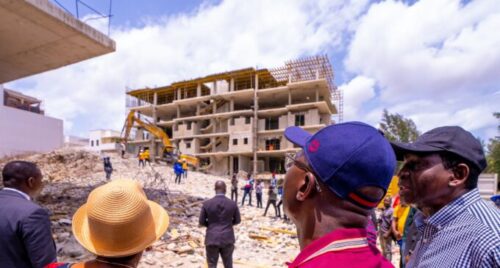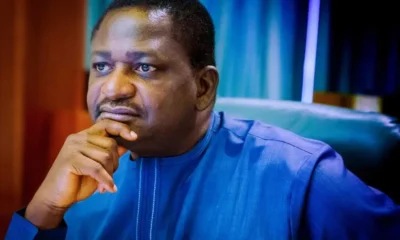BIG STORY
Sanwo-Olu Blames FG Over Unapproved Banana Island Extension, Orders Demolition

BIG STORY
Court Jails Gospel Singer Moses Otitoju, Eight Others For Cybercrime
BIG STORY
Kogi University Lecturer Dies During Sex Romp In Hotel Room With 200-Level Student
BIG STORY
FULL LIST: Tinubu Appoints IBB’s Son, Muhammad Babangida Chairman Bank Of Agriculture, Others As Heads Of Govt Agencies
-

 BIG STORY3 days ago
BIG STORY3 days agoRCCG Pastor Absconds With $8000 Church Money, Abandons Wife, Marries New One
-

 BIG STORY4 days ago
BIG STORY4 days agoAmaechi Wears Turban To Buhari’s Burial In Daura
-

 BIG STORY1 day ago
BIG STORY1 day agoFULL LIST: Tinubu Appoints IBB’s Son, Muhammad Babangida Chairman Bank Of Agriculture, Others As Heads Of Govt Agencies
-

 BIG STORY4 days ago
BIG STORY4 days agoAliko Dangote Submits Paperwork To Build Biggest Seaport In Nigeria
-

 BIG STORY3 days ago
BIG STORY3 days agoKeyamo Faults Atiku’s Use Of Coat Of Arms In PDP Resignation Letter, Says “You Left Office 18 Years Ago”
-

 BIG STORY1 day ago
BIG STORY1 day agoBuhari Never Wanted To Congratulate Saraki, Dogara After Emerging Senate President, Speaker — Femi Adesina
-

 BIG STORY4 days ago
BIG STORY4 days agoWhat Buhari Told Me About President Tinubu After Fuel Subsidy Removal — Katsina Governor Radda
-

 BIG STORY1 day ago
BIG STORY1 day agoLagos Unveils Nigeria’s First Local Government Owned Radio Station [PHOTOS]


















